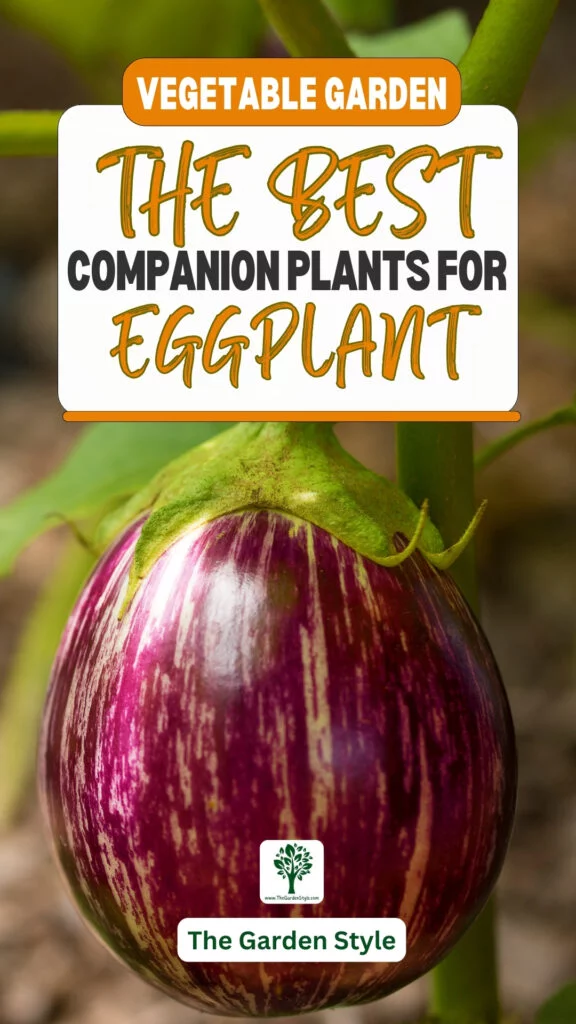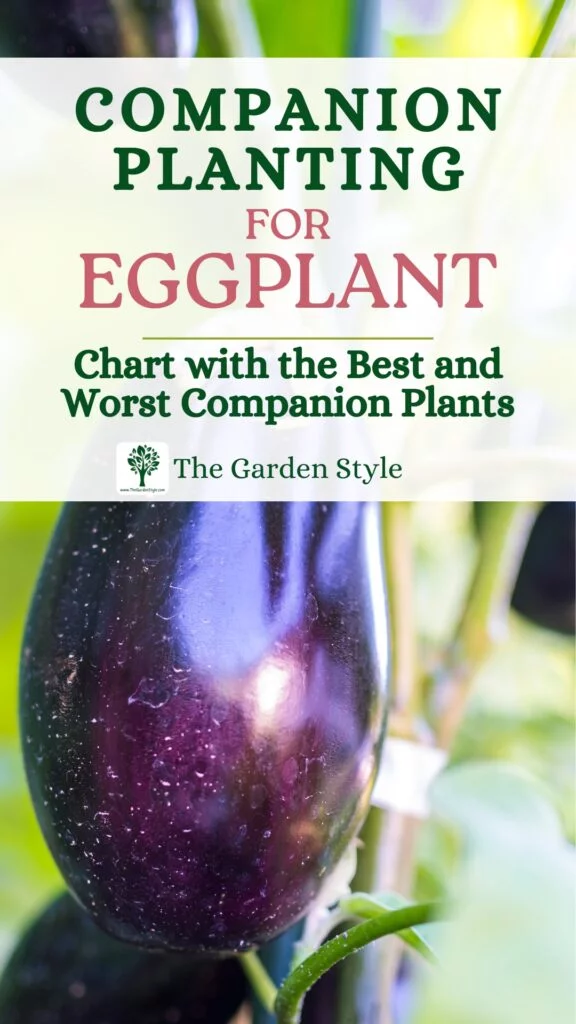Eggplants, with their glossy purple hue and versatile culinary applications, are a beloved addition to any vegetable garden. However, to ensure optimal growth and yield, it’s essential to consider their companions in the garden. In this guide, we’ll delve into the world of companion plants for eggplant, highlighting the best allies to promote their health and productivity.
Table of Contents
What is Companion Planting?
Companion planting is a gardening technique where certain plants are grown together to enhance each other’s growth, repel pests, or provide other benefits. It’s like creating a harmonious ecosystem within your garden, where plants support and complement one another. By strategically selecting their companions, you can create a thriving environment that fosters the health and vitality of your eggplants.
The Best Companion Plants for Eggplant
| Companion Plants | Benefits for Eggplant |
| Basil | Enhances the flavor of eggplant dishes; repels pests like aphids and spider mites; boosts growth and flavor of eggplants. |
| Marigolds | Repels nematodes that can damage eggplant roots; acts as natural pest deterrent; protects eggplants from soil-borne pests. |
| Nasturtiums | Attracts beneficial insects like ladybugs and hoverflies; repels pests such as aphids and whiteflies; provides shade and ground cover to conserve soil moisture and suppress weeds. |
| Beans | Enriches soil with nitrogen, promoting healthier growth; provides support for sprawling eggplant stems. |
| Peppers | Deters common eggplant pests like flea beetles and aphids add flavor and protection to eggplants. |
| Thyme | Repels pests like cabbage worms and flea beetles; adds fragrance to the garden; enhances growth and flavor of eggplants. |
| Wormwood | Repels pests like aphids and cabbage moths; creates a natural barrier against unwanted insects. |
| Mint | Repels pests like aphids and flea beetles; suppresses weeds; enhances the growth of eggplants. |
| Oregano | Repels pests like aphids and spider mites; attracts beneficial insects like hoverflies and parasitic wasps; promotes the health and vigor of eggplants. |
| Dill | Enhances the flavor of eggplant dishes; attracts predatory insects that prey on pests; boosts growth and repels harmful insects. |
Basil
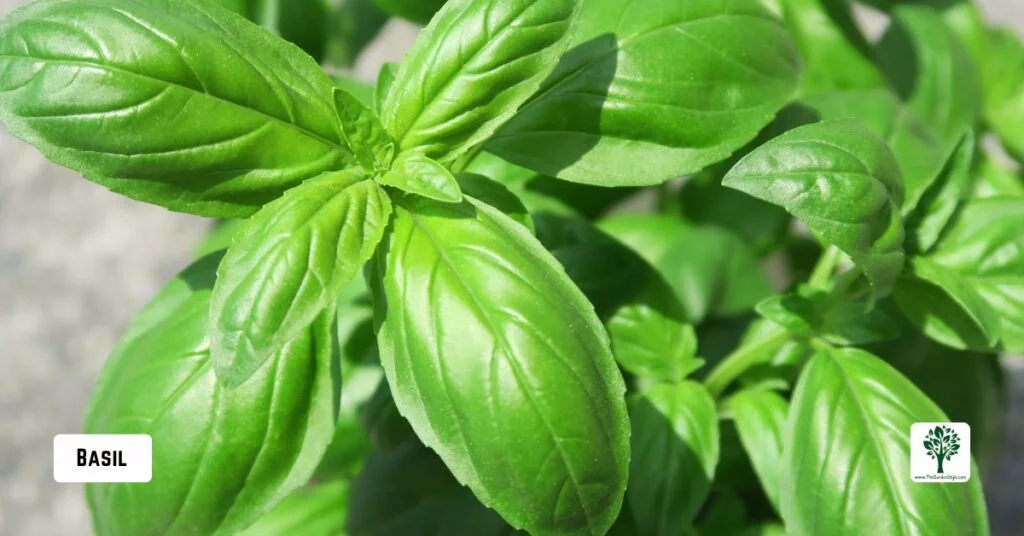
As companion plants for eggplant, basil is a classic choice, thanks to its aromatic leaves that enhance the flavor of eggplant dishes and repel pests like aphids and spider mites. Planting basil alongside eggplants can boost their growth and flavor while deterring harmful insects. Learn how to plant basil.
Marigolds
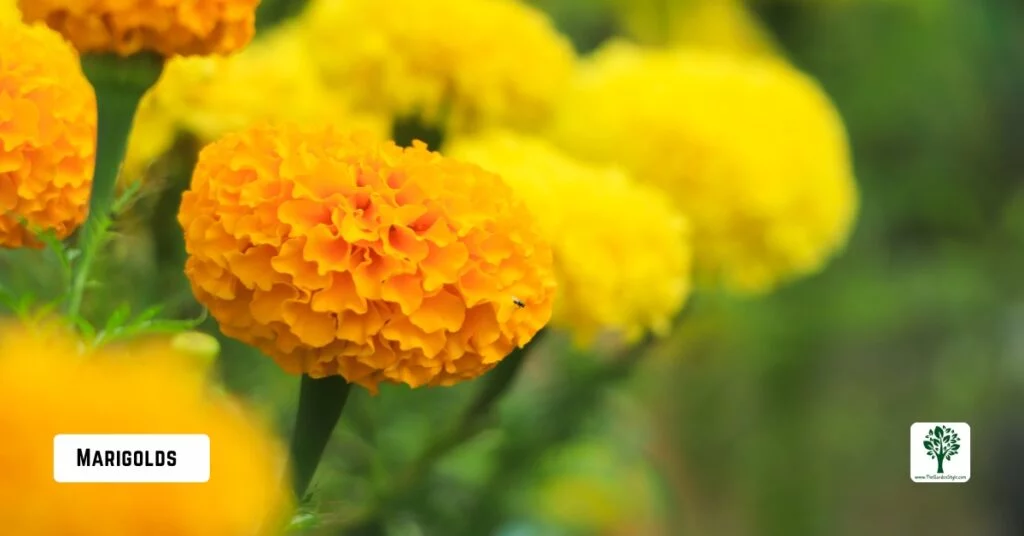
Marigolds are renowned for their ability to repel nematodes, which can damage eggplant roots. Their vibrant flowers add color to the garden while serving as natural pest deterrents. It would help if you plant marigolds around the perimeter of your eggplant patch to protect them from soil-borne pests. Learn how to grow marigolds.
Nasturtiums
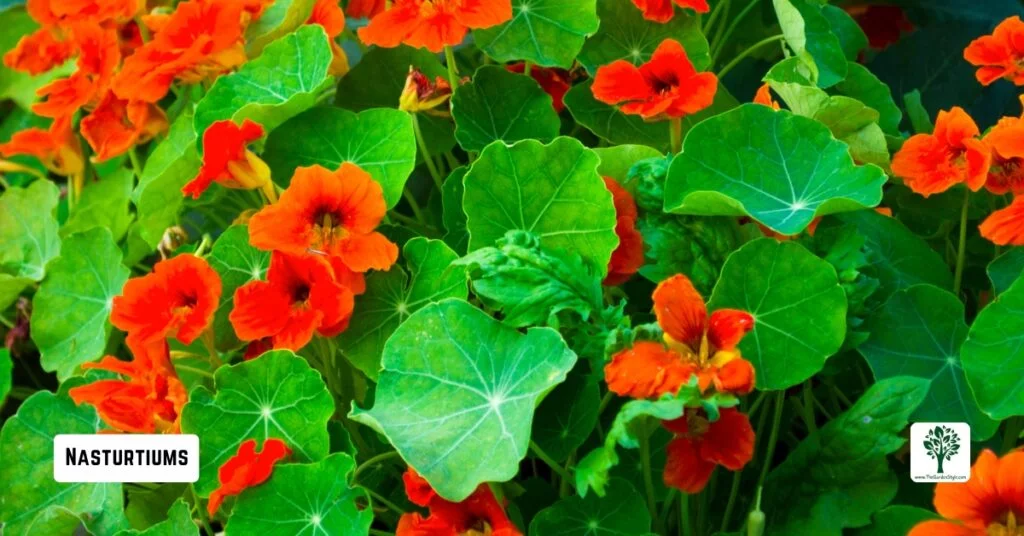
As companion plants for eggplant, nasturtiums not only attract beneficial insects like ladybugs and hoverflies but also repel pests such as aphids and whiteflies. Their sprawling growth habit can provide shade and ground cover for eggplants, helping to conserve soil moisture and suppress weeds.
Beans
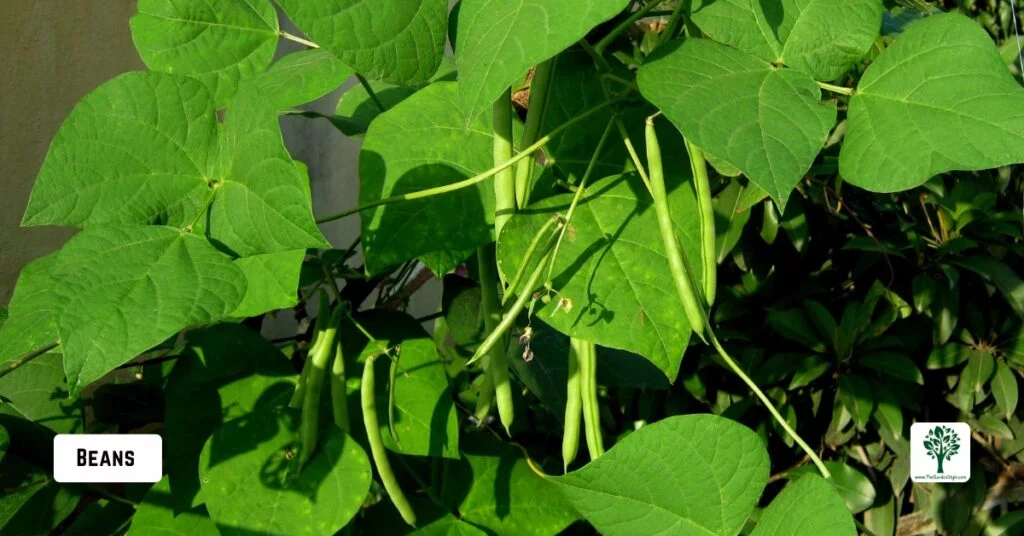
Beans, like peas and other legumes, are nitrogen-fixing plants that enrich the soil with nitrogen, an essential nutrient for plant growth. Planting beans alongside eggplants can improve soil fertility and promote healthier, more robust growth. Plus, their upright growth habit can provide support for sprawling eggplant stems.
Peppers
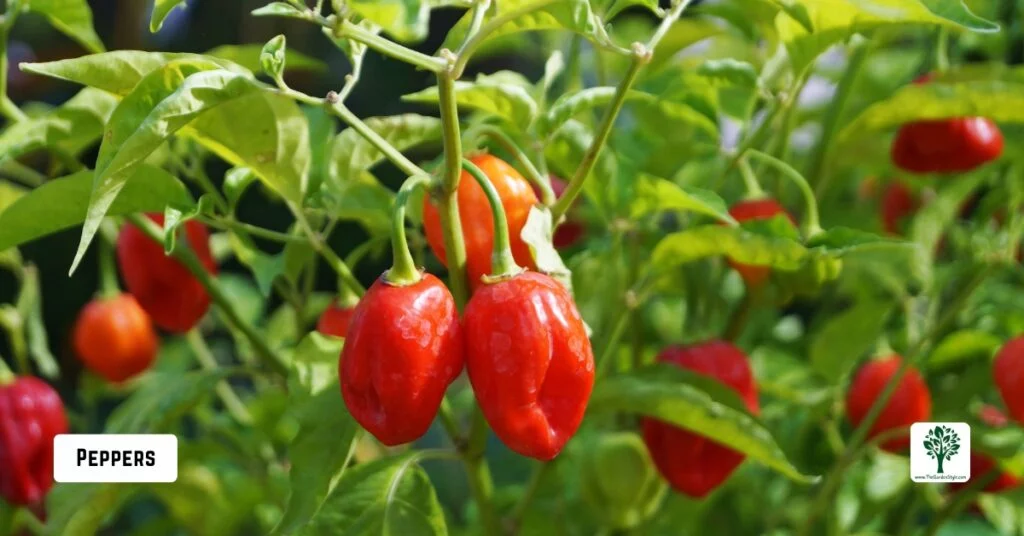
As companion plants for eggplant, peppers, particularly hot varieties like chili peppers, can deter common eggplant pests such as flea beetles and aphids. Their spicy foliage acts as a natural insect repellent while adding a touch of heat to your culinary creations. It would be best if you plant peppers alongside eggplants for mutual protection and flavor enhancement. Learn how to grow bell peppers.
Thyme
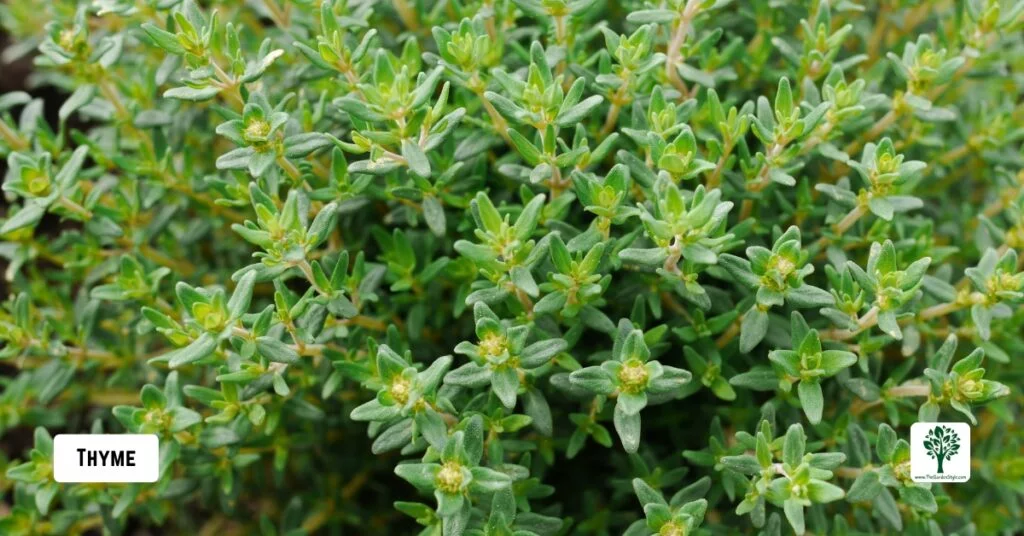
Thyme is not only a flavorful herb but also a beneficial companion for eggplants. Its aromatic foliage repels pests like cabbage worms and flea beetles while adding a delightful fragrance to the garden. It would help if you plant thyme near your eggplants to enhance their growth and flavor.
Wormwood
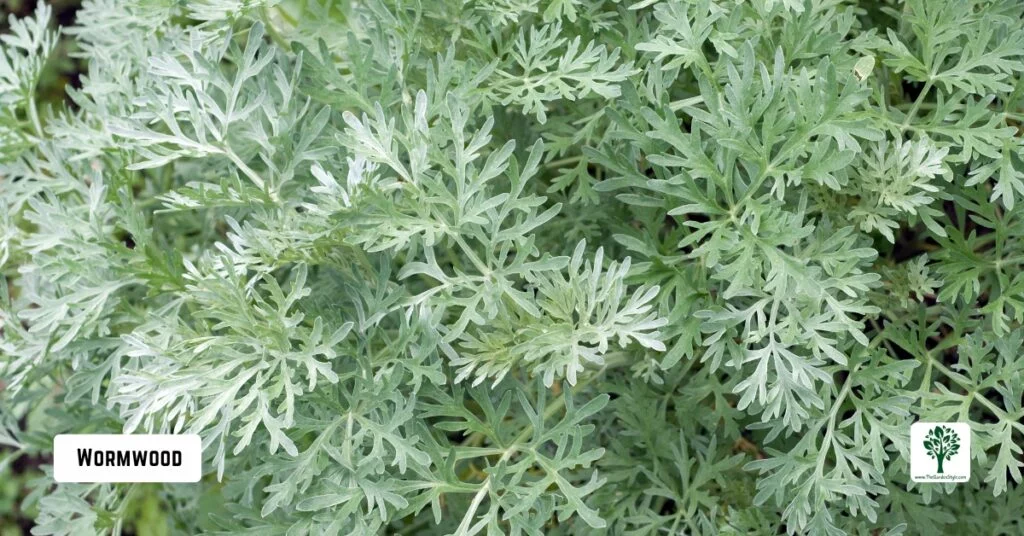
Wormwood, with its bitter-tasting foliage, is an excellent companion for eggplants due to its ability to repel pests like aphids and cabbage moths. Planting wormwood around the perimeter of your eggplant patch can create a natural barrier against unwanted insects.
Mint
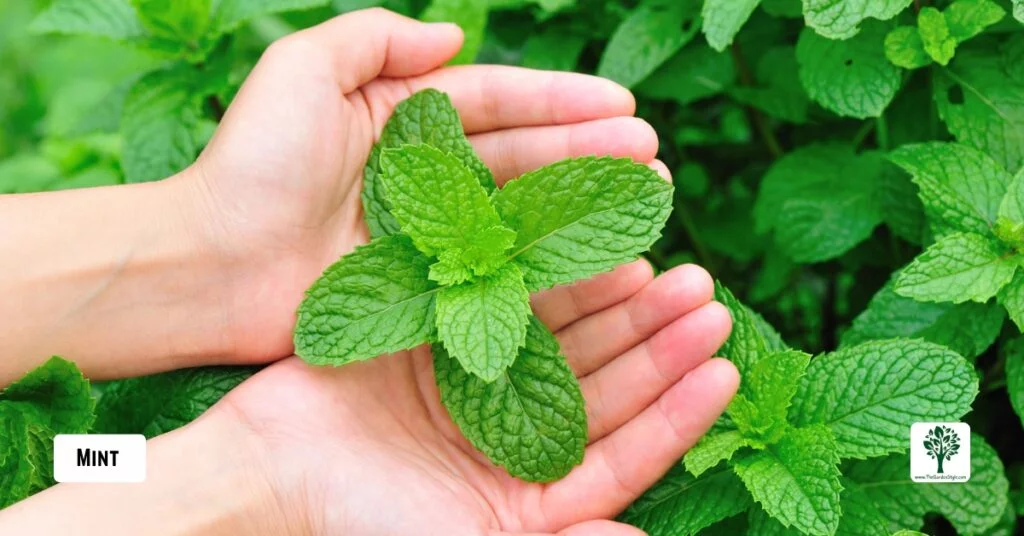
Mint, with its refreshing scent and vigorous growth, can serve as a beneficial companion for eggplants. It repels pests like aphids and flea beetles while providing ground cover to suppress weeds. However, mint can be invasive, so it’s best to plant it in containers or confined areas.
Oregano
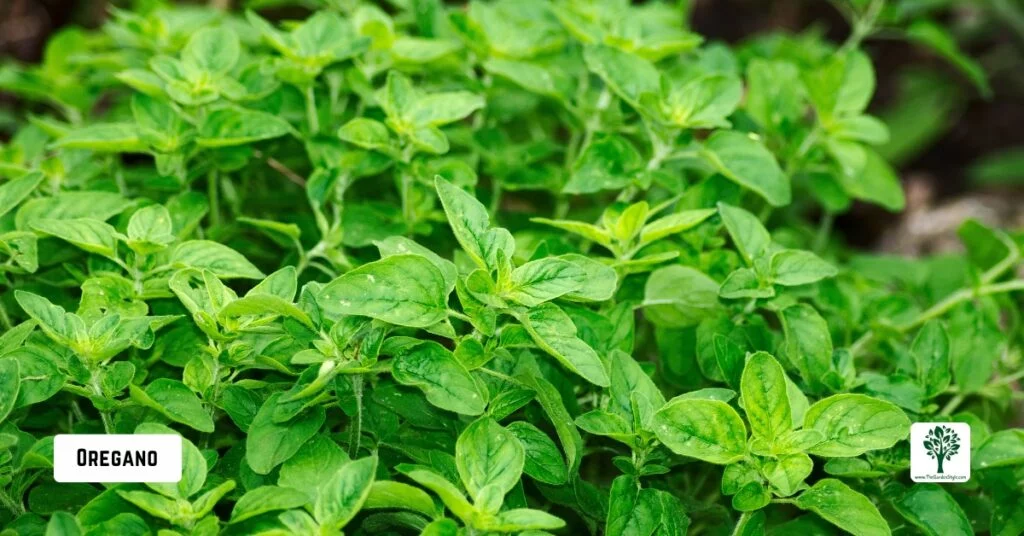
Oregano not only adds flavor to your culinary creations but also offers benefits as a companion plant for eggplants. Its pungent aroma repels pests like aphids and spider mites while attracting beneficial insects like hoverflies and parasitic wasps. Plant oregano near your eggplants to promote their health and vigor.
Dill
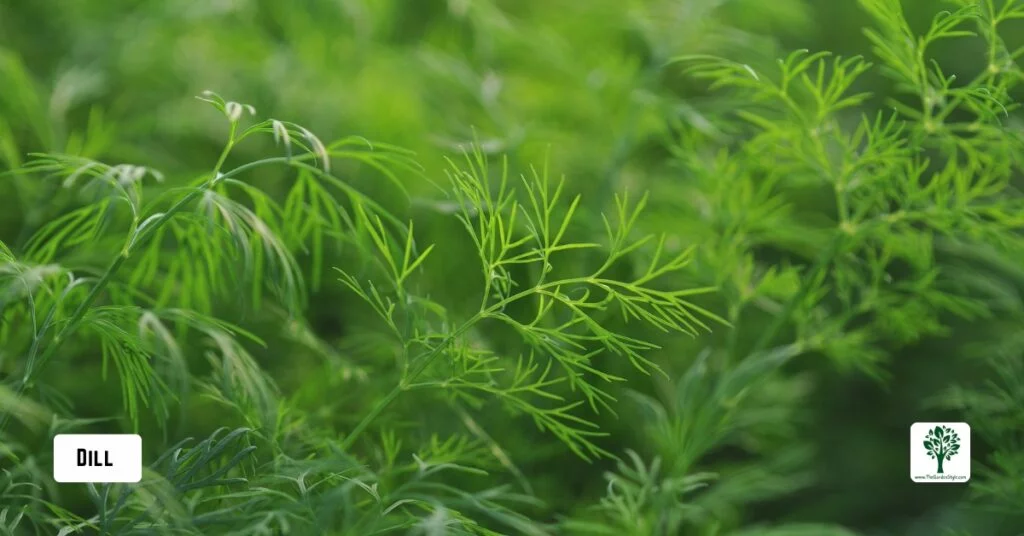
Dill is an aromatic herb that can enhance the flavor of your eggplant dishes while also attracting beneficial insects like predatory wasps and hoverflies, which prey on aphids and other garden pests. Plant dill near your eggplants to boost their growth and repel harmful insects. Learn how to grow dill.
Plants to Avoid with Eggplants
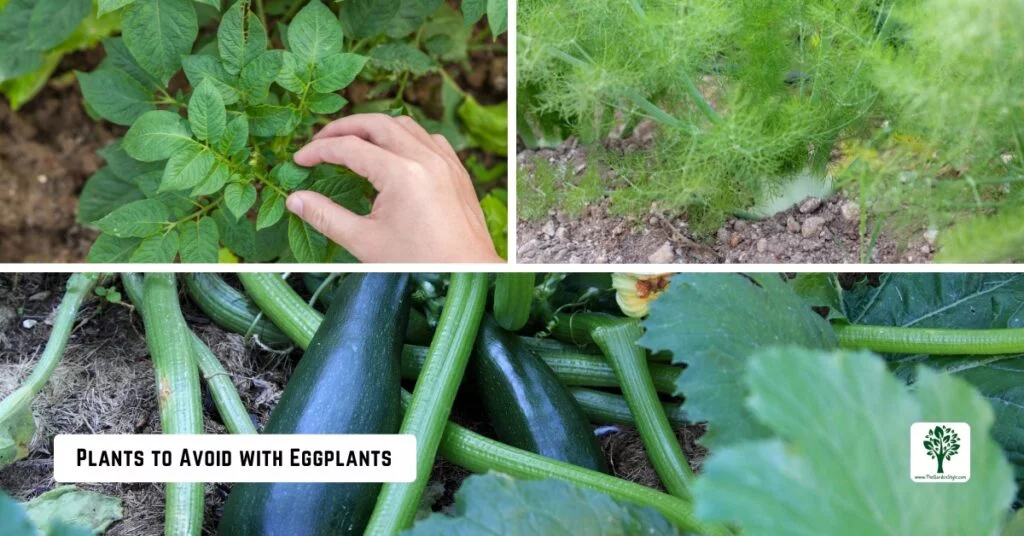
When planning your garden layout, it’s essential to consider not only which plants complement each other but also those that may hinder each other’s growth. In the case of eggplants, certain plant companions should be avoided to ensure their health and productivity. Here are some plants that are best kept separate from eggplants:
Potatoes
Potatoes and eggplants belong to the same botanical family, Solanaceae, making them susceptible to similar pests and diseases. Planting them together can increase the risk of pest infestations and soil-borne diseases like verticillium wilt. It’s best to keep these nightshades separate in the garden.
Fennel
Fennel exudes chemicals that can inhibit the growth of nearby plants, including eggplants. Avoid planting fennel near your eggplants to prevent stunted growth and potential flavor alterations. Instead, opt for compatible companions that will support the health and vitality of your eggplants.
Zucchini
While zucchini and eggplants may seem like natural companions, they actually compete for resources and can inhibit each other’s growth. Both plants have large, spreading foliage that can overshadow one another, leading to reduced sunlight penetration and airflow. Additionally, they are susceptible to similar pests and diseases, such as powdery mildew. It’s best to avoid planting zucchini near your eggplants to ensure optimal growth and yield.
Tips for Successful Companion Planting with Eggplant
Companion planting with eggplants can be a rewarding endeavor, promoting healthier plants and higher yields. Here are some tips to ensure success in your garden:
- Plan Ahead: Before planting, research suitable companion plants for eggplants and their benefits. Consider factors such as pest resistance, soil requirements, and space compatibility.
- Diversify: Mix and match companion plants to create a diverse garden ecosystem. Incorporating a variety of plants with different characteristics can help deter pests and improve soil fertility.
- Complement Growth Habits: Choose companion plants with compatible growth habits to prevent overcrowding and competition for resources. Tall plants can provide shade and support for sprawling eggplants, while ground-cover plants can suppress weeds and retain moisture.
- Rotate Crops: Practice crop rotation to prevent soil depletion and minimize the buildup of pests and diseases. Avoid planting eggplants and their companions in the same location year after year to maintain soil health and productivity.
Frequently Asked Questions
In addition to companion planting, you can use organic pest control methods such as neem oil spray, insecticidal soap, and hand-picking pests. Encouraging beneficial insects like ladybugs and lacewings can also help keep pest populations in check.
While both eggplants and tomatoes belong to the Solanaceae family, they have different growing habits and requirements. It’s generally recommended to avoid planting them together to reduce the risk of diseases like early blight and verticillium wilt.
If this post about the best companion plants for eggplant was helpful, please share it:
